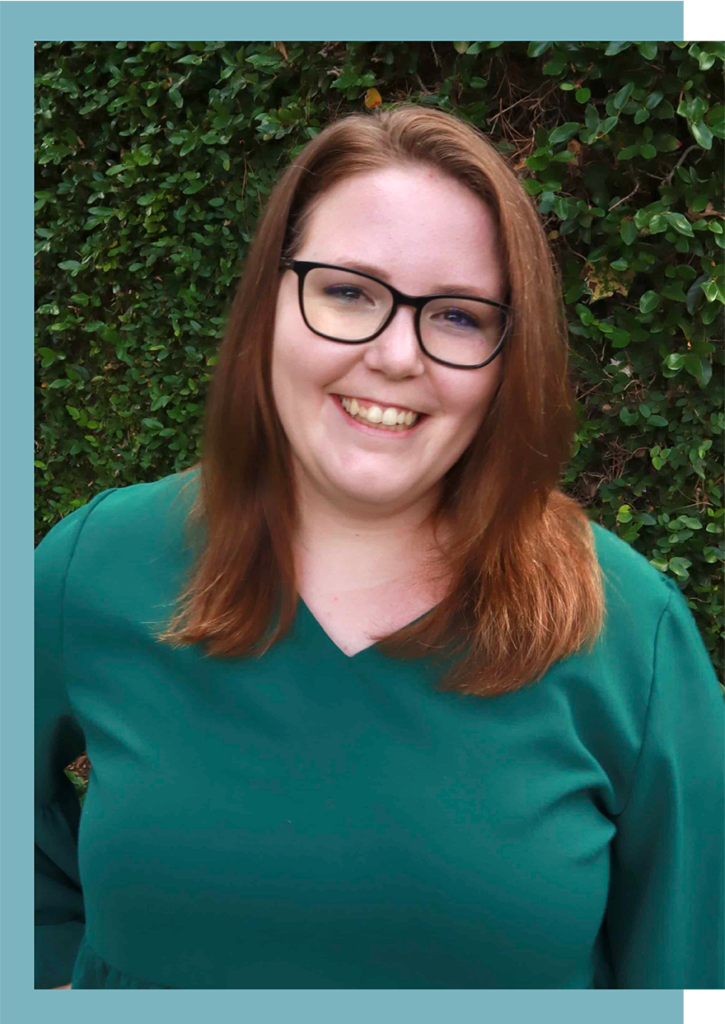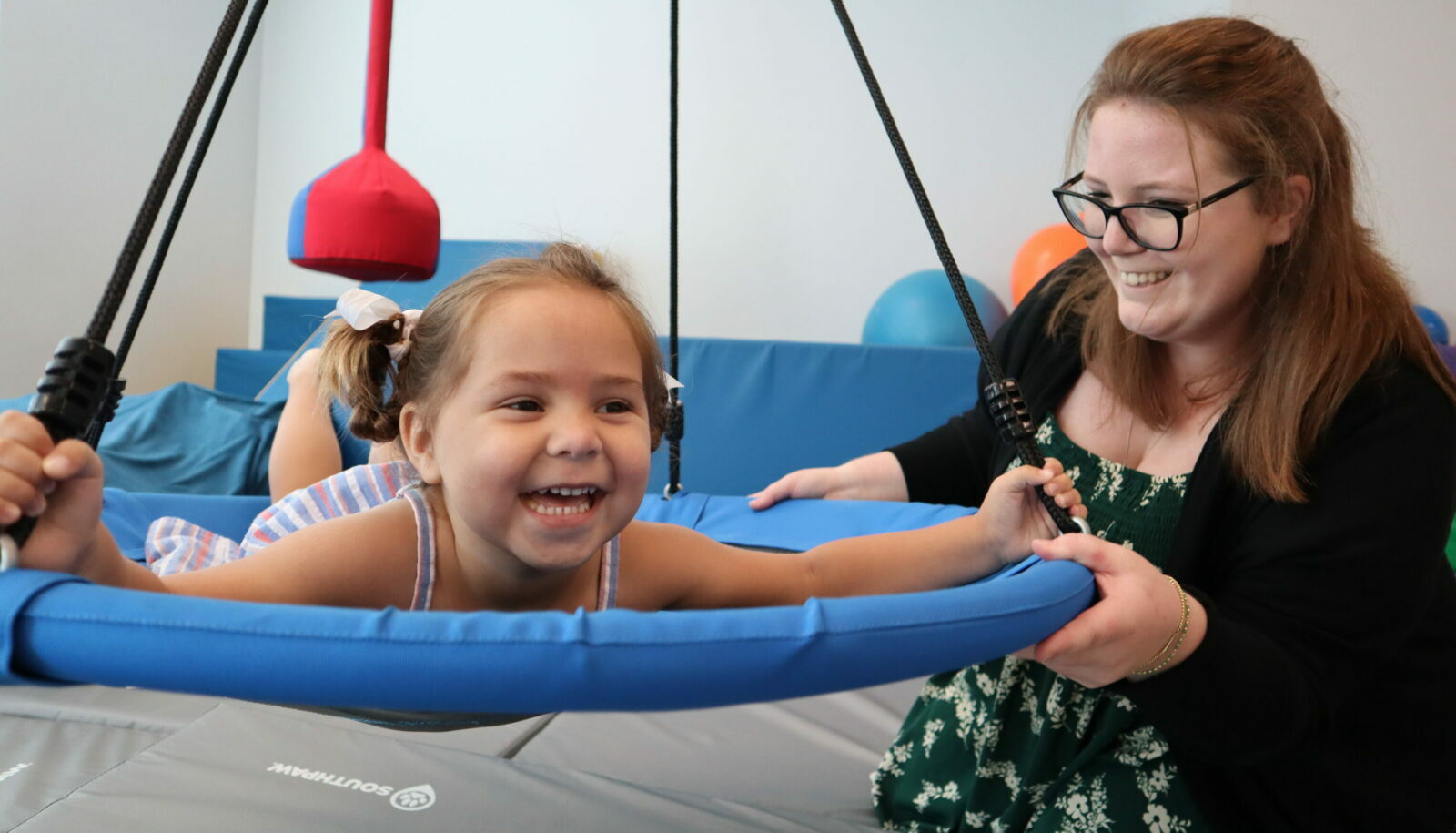As an occupational therapist, the number one question I get from parents, caregivers, and even other professionals is “What is occupational therapy?”. The name really doesn’t provide a lot of information on what OT intervention looks like, or how it benefits a pediatric population. Occupational therapists are trained healthcare professionals who help individuals who experience traumatic injuries, illness, or developmental delays increase independence and confidence in order to participate in everyday tasks. Occupational therapists have a master’s degree or a doctoral degree and can have additional certifications in sensory integration. While OT’s can work with adults too, pediatric occupational therapists work to develop fine motor skills, gross motor skills, school skills, and other types of skill sets in order to support participation.
What is a Childhood Occupation?
Occupational therapy addresses anything and all things you need to do during your everyday life. Consider how your morning went. You probably woke up, got dressed, brushed your teeth and hair, made breakfast, packed a lunch, etc, etc, etc. These activities are all considered occupations because they occupy your time during the day. In order to complete these tasks efficiently, you need accurate fine motor skills, gross motor skills, visual perceptual skills, sensory processing skills, balance, bilateral coordination, executive functioning, and more. Occupational therapists work on developing skills in order to improve independence with day to day tasks. For children, occupational therapists develop treatment plans which focus on improving sensory integration, developing gross motor skills, bilateral coordination, executive functioning, problem solving, and fine motor skills needed to meet developmental milestones, achieve independence with everyday activities, and improve their ability to play and develop peer relationships.
What are Fine and Gross Motor Skills?
Gross motor skills include any motor action that uses large muscles of our body. If you are. using your arms, legs, core, or any combination of those major muscle groups, you are likely completing a gross motor task. Examples of these skills include, skipping, jumping jacks, riding a bike.
Fine motor skills usually involve only the small muscles of the hands. Fine motor skills can include but are not limited to handwriting, scissor skills, using a spoon, fork, or knife, coloring, buttoning, fastening a zipper, shoe tying, stringing beads, etc.

What are Sensory Processing Disorders?
Sensory processing is the general term for how our body takes in information from the environment (sensory input) through our receptor organs (like our noses, eyes, mouth, skin, etc.), decodes that information, and then uses it to inform our motor reactions. We all process sensory information differently, and there is not a “correct” way to respond to different environmental input. That being said, when sensory processing issues impact function, well being, or independence with daily living, intervention may be warranted. Sensory processing disorders are the general description for difficulty tolerating, responding to, or registering certain types of sensory input from the environment, impacting day to day activities.
Emotional Regulation and Occupational Therapy
Oftentimes, when sensory processing or motor coordination are challenging, children can have difficulty regulating their emotions, tolerating frustration, filtering extraneous sensory input, and feeling confident and secure in their bodies. This can negatively impact social skills, school performance, and can cause strain for families. Seemingly minor disagreements or interactions can result in large emotional reactions, aggression, and big feelings. Occupational therapy works to help individuals develop a toolbox of coping strategies, communicate their feelings, and take steps to reduce the frequency of tantrums and frustration to promote positive interactions with daily activities.
Does my child need occupational therapy?
If your child is struggling to participate in everyday routines and activities (like brushing teeth, brushing hair, getting dressed, self-feeding, organizing materials, fastening zippers, fastening buttons, tying shoelaces, etc.) or is having difficulties focusing, completing multi-step tasks, or completing school activities, they may benefit from intervention.
Overall…
Occupational therapists work on developing skills in order to improve independence with day to day tasks. Childhood occupational therapy works to support those day to day skills for children ages 0-23. These areas usually involve dressing, self-care, self-feeding, fine motor, and gross motor skills. If you have concerns about your child’s development, behavioral problems, or suspect sensory processing problems, consult with your pediatrician or a pediatric occupational therapist to determine if services are needed. You know your child best, and if you have concerns, it is always best to reach out!


Kaelyn Green, MA, OTR/L
Kaelyn Green is a licensed occupational therapist at Valued Voices. She is certified by the University of Southern California in Sensory Integration and is an advocate for addressing underlying sensory functioning in order to improve occupational performance. She is passionate about meeting children and families where they are at and seeks to tailor interventions to the unique needs of her clients. When she is not working, you will find Kaelyn taking care of her two goldendoodles, working in her garden, or taking trips to the Central Coast.

